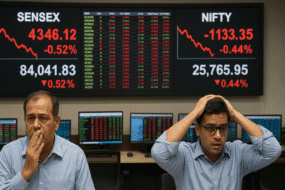In a move raising eyebrows among economists and trade experts, Bangladesh is now purchasing Indian rice via Dubai at inflated prices, instead of importing directly from India — a decision many attribute to the country’s deteriorating diplomatic ties with New Delhi.
According to Bangladesh’s Food Ministry, the rice being imported through Dubai originates from India. The supplier’s office is based in the UAE, making the transaction an indirect trade route that significantly increases costs. The Government Procurement Advisory Council has approved the purchase of 100,000 tons of rice — 50,000 tons of Atap rice from Myanmar and 50,000 tons of non-basmati parboiled rice from Dubai — worth 446.23 crore taka.
Despite this, officials insist that the move is meant to maintain “risk-free” reserves, even though Bangladesh currently holds 1.5 million tons of rice in stock, more than its usual buffer.
Why Bangladesh’s Rice Purchase is Controversial
Economists have criticized the decision, pointing out that Dubai neither grows nor processes rice, and is merely re-exporting Indian rice. This middleman arrangement adds unnecessary expenses, wasting public money.
Experts say the decision is a direct outcome of the strained relationship between the Yunus-led interim government in Dhaka and India. Since coming to power following Sheikh Hasina’s ouster, the Yunus administration has pivoted toward China and Pakistan, distancing itself from India — the nation that helped Bangladesh gain independence in 1971.
Economic Fallout of Political Strain
The cooling relations have already started affecting Bangladesh’s economy. India’s move to restrict land port access for Bangladeshi goods has forced exports to rely on more expensive sea routes, increasing transportation and logistics costs.
According to the Global Trade Research Initiative (GTRI), this policy shift will cause Bangladesh a loss of nearly $770 million, equivalent to 42% of bilateral imports.
Meanwhile, Bangladesh’s trade deficit continues to widen, with higher import bills and fewer export opportunities to India.
The Bigger Picture
Analysts argue that the Yunus government’s diplomatic realignment is costing Bangladesh economically and strategically. India’s land route closures not only raise the cost of trade but also risk disrupting connectivity to India’s northeastern states and regional supply chains.
While Bangladesh insists the rice purchase is routine, experts say it symbolizes a deeper breakdown in trust and trade cooperation between the two South Asian neighbors.
Conclusion
By buying Indian rice through Dubai, Bangladesh is paying more for what it could import directly and more efficiently. The episode reflects how political tensions are spilling over into economic inefficiency, with the burden ultimately falling on Bangladeshi taxpayers.
If ties with India continue to remain frosty, analysts warn, Bangladesh’s economic and logistical challenges could intensify, undermining its regional trade competitiveness and long-term stability.
Originally published on newsworldstime.com.






One reply on “Bangladesh Forced to Buy Indian Rice Through Dubai at Higher Prices Amid Strained Ties with India”
[…] Originally published on 24×7-news.com. […]